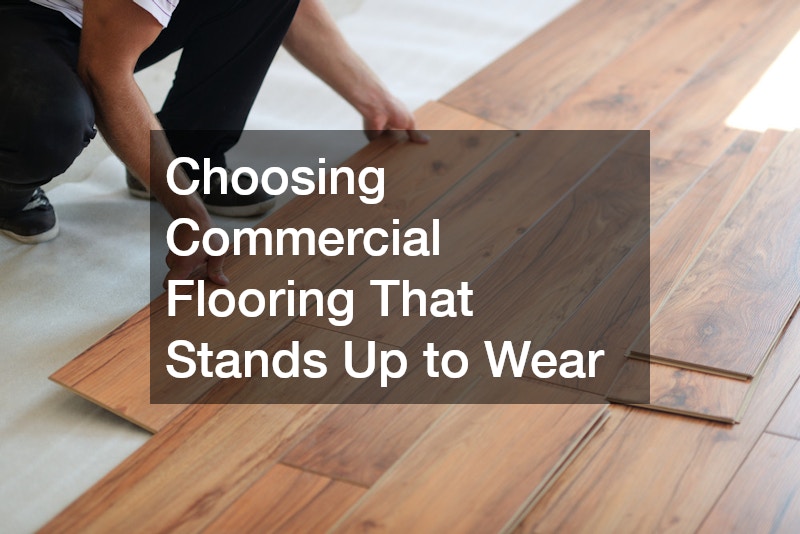
In this article, we will explore essential considerations for selecting commercial flooring that is durable and suited to high-traffic environments. Understanding the various options available can help you make informed decisions that will benefit your business in the long run.
In busy commercial spaces, the type of flooring selected plays a crucial role in maintaining both functionality and aesthetics. Materials such as vinyl, for instance, are popular for their resilience and wide range of design options.
Video Source
They can withstand heavy foot traffic while maintaining their appearance over time, making them a practical choice for retailers and offices alike.
Tile flooring is another great option, particularly in environments prone to spills or moisture. Its durability and ease of cleaning make it perfect for restaurants, schools, and healthcare facilities. Furthermore, tiles are available in a multitude of styles, providing versatile solutions that can match any interior design theme.
Rubber flooring is well-regarded for its slip resistance and cushioning properties, ideal for gyms, schools, and daycare centers. The ability to absorb noise and impact reduces fatigue for those standing for long periods, ensuring a comfortable experience for both employees and customers. Each of these flooring options has unique benefits that cater to diverse commercial needs.
When selecting flooring materials for a commercial setting, several key factors should influence your choice. First among these is the specific functionality required by your business. For instance, a high-end retail store might prioritize aesthetic appeal over sheer durability, while a warehouse may require flooring that can withstand heavy loads.
Another critical consideration is maintenance. Different flooring types carry varying maintenance requirements, and understanding these can save time and money in the long run. For example, hardwood floors offer beauty but require regular polishing, while vinyl and rubber may only need occasional mopping and refinishing to keep them looking their best.
Cost-efficiency also plays an important role in the decision-making process. While the initial investment is essential, consider other aspects such as lifespan and required maintenance. When you factor in longevity and reduced maintenance costs, some higher upfront costs can turn out to be more economical over time, ultimately benefiting your bottom line.
Regular maintenance is essential to ensure the longevity and performance of your chosen commercial flooring. Different materials have distinct needs; for example, natural stone may require periodic sealing to protect against stains and moisture. On the other hand, vinyl flooring typically needs only a straightforward cleaning regimen utilizing gentle detergents and mops.
For resilient flooring types like rubber, sweeping and damp mopping should suffice for regular maintenance. However, more intensive cleaning methods may be necessary at intervals to prevent the buildup of grime. Establishing a routine that includes inspections at scheduled intervals can help identify potential issues before they escalate.
In addition to daily and weekly maintenance tasks, consider conducting annual deep cleans and assessments of your flooring's condition. This thorough approach not only enhances the appearance of your floors but can also reveal areas needing repair or replacement, thus averting more significant expenses down the line.
To prolong the lifespan of your commercial flooring, proper installation is critical. It’s highly recommended to engage professional installers with experience in your selected material, as improper installation can lead to future complications like warping or bubbling. A thorough assessment of the subfloor and proper level adjustments can also significantly impact durability.
Protective treatments, such as applying sealants or finishes, can offer additional safeguarding against wear and tear. Assess the specific needs of your business environment and choose a treatment that complements your flooring type. For instance, high-gloss finishes may enhance the appeal of hardwood, while slip-resistant coatings can enhance safety in public spaces.
Finally, educating your staff and customers can be an invaluable asset in maintaining your flooring. Implementing 'no-slip' policies or using mats at entry points can minimize the risk of damage and slipping. When everyone understands the significance of protecting the flooring, it can lead to reduced maintenance costs and a safer environment for all.
Choosing the right commercial flooring that stands up to wear is vital for maintaining a welcoming and functional environment in your business. By considering your options carefully, you can make a choice that enhances both durability and aesthetic appeal. Making informed decisions today will ultimately benefit your business for years to come.
